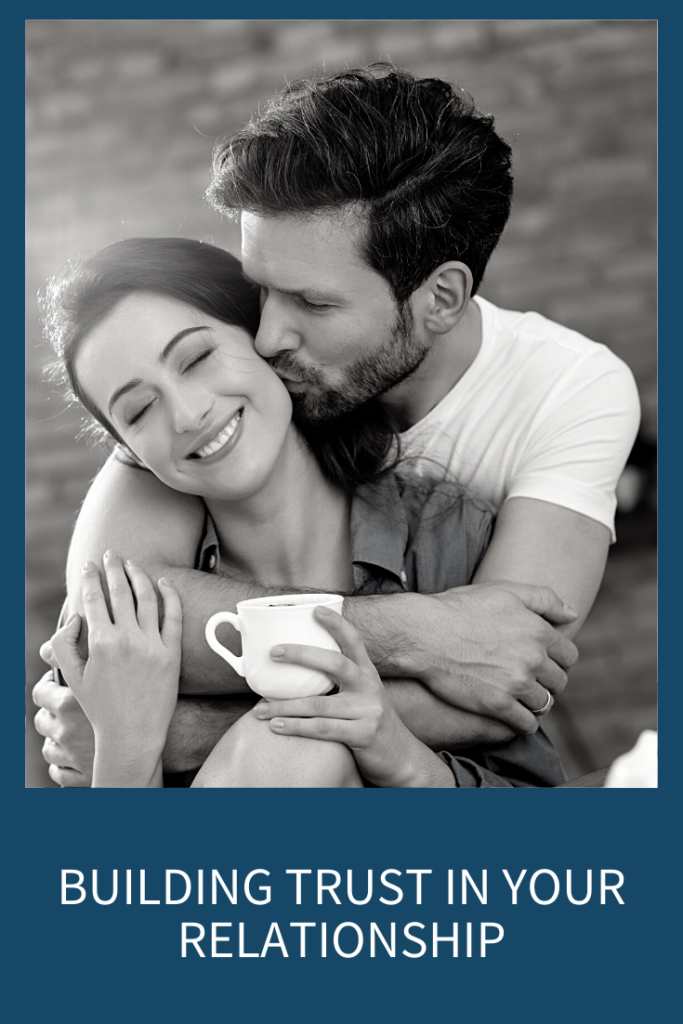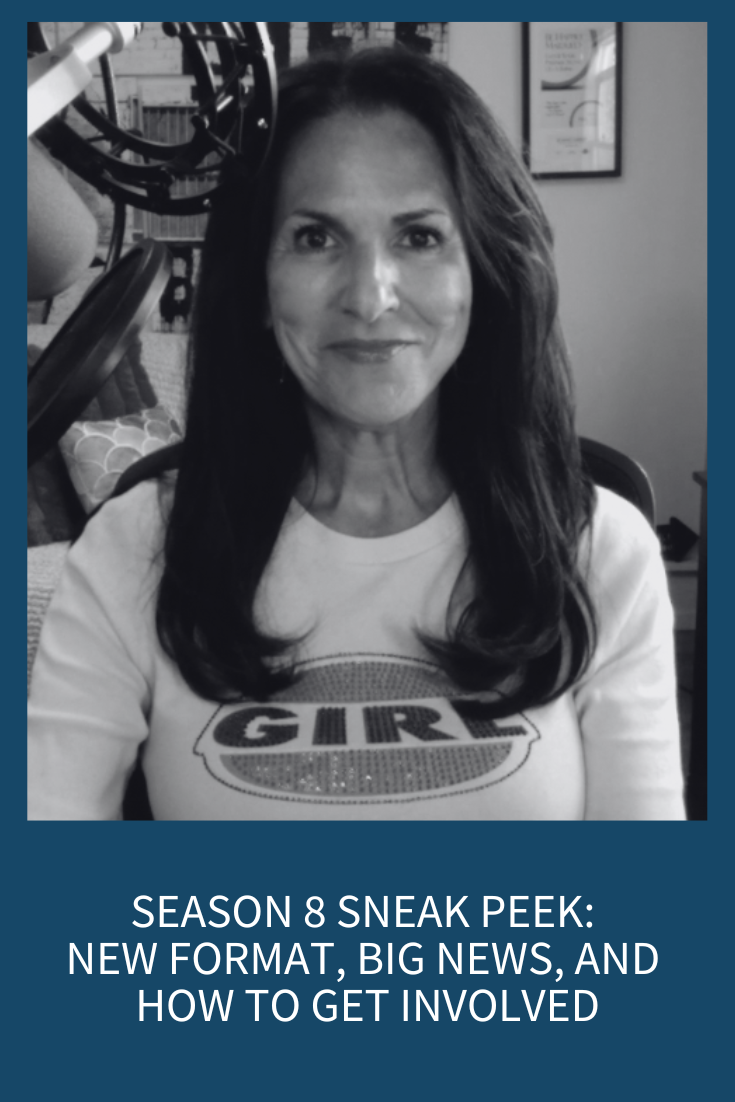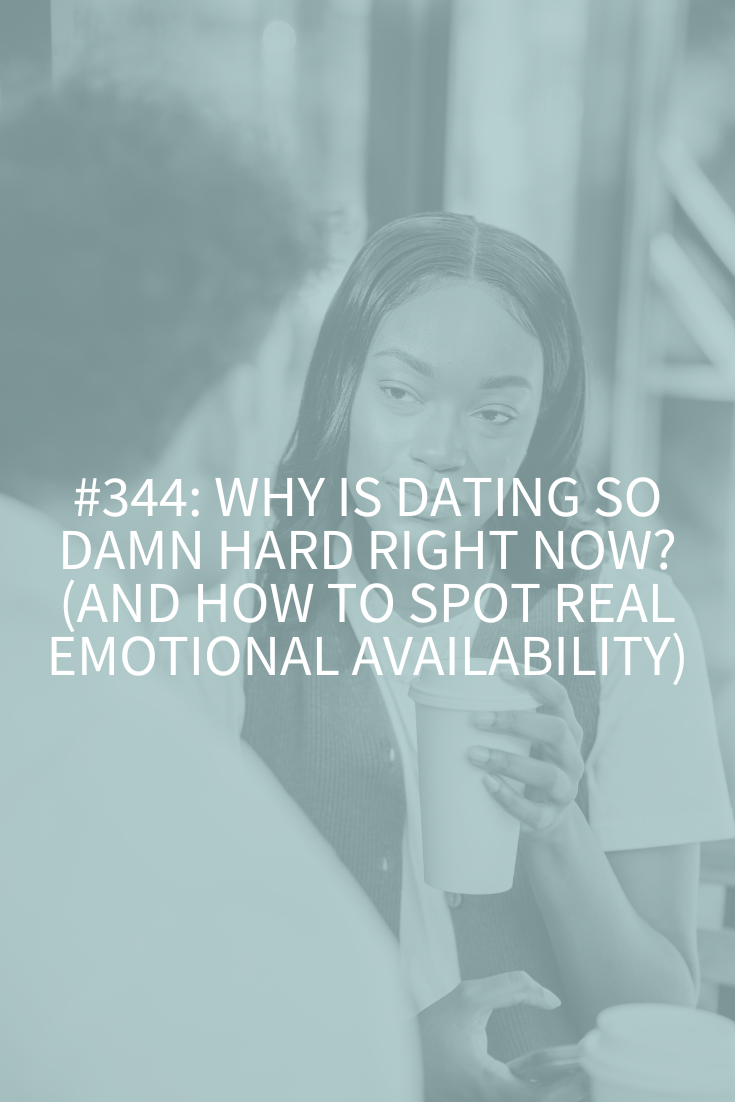Today’s article and podcast is all about how to establish and build trust in your relationship. I’m going to teach you the three components that make up trust (and why you need all three), and then I’m going to give you my top tips for building trust based on the Trust Triad.
Trust is something we all want and need. But, for something that’s so important in our lives, most people know surprisingly little about the components that make up trust. Most people tend to think they’re trusting their gut or their instincts when it comes to their relationships, but there’s really much more to it than that.
Trust can actually be broken down into three main elements that I call the Trust Triad: competency, integrity and goodwill.
1. Competency
Competency in a relationship is huge. Does your partner do what they say they will successfully and efficiently? This is being competent. Do they follow through? Do they show up on time? Do you believe that they can do the things they promise or commit to? In other words, can they do the job of being your partner?
We build the competency leg of the Trust Triad by taking things on and following through. We do it by not letting the little things slip through the cracks. We also build this by not saying yes to everything. When we say yes to everything, we can’t do it all. It’s important to commit to a smaller number of things and do them consistently well. This is when I talk about getting help as much as possible. When there’s too much on our plate, things slide, and we try to be everything to everyone, so competency fades.
2. Integrity
Integrity is really about how honest you feel your partner is. Are they telling you something so you won’t get upset? Are they trying to manipulate you to get their way or avoid a conflict? Are they saying they feel one way, but you think they really feel another? Are they telling you outright lies consistently? We build up this facet of the Trust Triad by speaking our true feelings; being willing to have those harder conversations and not brushing everything under the rug. We do this by speaking as truthfully as possible, all the time – especially about the little things.
3. Goodwill
The last factor, goodwill, is all about you believing that your partner has your best interest at heart and that they care about you as a person, not just the role you fulfill. We tend to build this side of the Trust Triad as we express compassion and empathy for our partner’s feelings. It’s when we stop and give our full attention, listen well and ask specific questions. It’s when we approach things as a “we” problem, not a “you” problem.
You’ve Got to Have All Three Elements to Build Trust
In relationships, you’re not always aware that trust is being built or undermined by all three of these components and this leads to problems, arguments and misunderstandings.
When you’re not aware that all three of these factors create a trusting relationship, you tend to focus on one or two areas that you’re good at and ignore the others.
I’m going to give you a great example of a couple I worked with, Antonio and Rebecca. Antonio was a super competent husband. He always showed up on time, did what he said he would, brought home a paycheck, coached their son’s baseball team, and followed through on his commitments. He didn’t lie and was always direct and clear with his thoughts and what he wanted.
However, Rebecca didn’t trust him. She thought Antonio was too self-centered and didn’t have her best interests at heart. She felt bulldozed quite often (her words) and she was unhappy. Antonio could not understand her feelings. “Other women would kill to have a faithful husband like me who does so much for his family!” But Rebecca felt like Antonio wanted to keep the marriage together because he didn’t like the idea of being divorced and not because he wanted her specifically. She didn’t feel special or “listened to.” Antonio was all about competence and integrity but he was sorely missing in the goodwill department.
If that one doesn’t ring your bell, let me give you a different take from another couple I worked with.
Lydia was a ride or die partner. She always had Mark’s back – no matter what. If someone said a sideways thing about her man, she was all over them! When Mark would complain about work, she listened without judgment and with unwavering loyalty. However, Lydia also made Mark wait… a lot. She was always about ten minutes behind and would try to “cover” with little white lies so Mark wouldn’t get mad. She didn’t like when Mark was upset with her, so she would often forgo her own wants and feelings for his. She would agree even when she didn’t want something, and she wouldn’t share how she really felt about certain things. She never rocked the boat. Mark didn’t trust Lydia and he was unhappy. Lydia couldn’t understand when Mark said he didn’t trust her. How could he not?! She was so incredibly loyal?!? In this case, Lydia was all about goodwill, but her competence and integrity were in question for Mark.
These examples will likely feel familiar to you and I’ve seen so many couples over the years missing Trust Triad pieces and then feeling frustrated. The Trust Triad factors are like a constellation. They’re intertwined. All of them need to be there, in tandem, for trust to be felt and grow in your relationship.
And, you need that trust to build because, over the course of your relationship, you will betray your partner.
I know this sounds harsh, but it’s the truth when it comes to building trust. We all betray our partners in one way or another. A lot of you right now are jumping to the big betrayal: “I would never cheat!” When I’m talking about you betraying your partner, I’m not just talking about the big stuff. I’m also talking about all the little betrayals that happen as a matter of life. All the mistakes we make and misunderstandings we have. You cannot avoid these.
As famed marriage expert John Gottman says, “Betrayal exists in every relationship. More often than not, the betrayals accumulate like small dents. Other times, they arrive like a sudden crash. In both cases, they present a unique opportunity for trust building.”
The small dents in building trust are things like:
- Making a simple mistake
- Not keeping a commitment
- Forgetting a special event
- Being late
- A misunderstanding
- Being interrupted or dismissed
- Missing a cue that they’re hurting and need support
- Inappropriate drug or alcohol use
- Not meeting your expectations about something
- Making a bad choice
- Not remembering something special that was shared
It’s at these times that you need to go back to the Trust Triad and ask yourself these three questions:
- Do I think my partner’s competent?
- Are they honest?
- Do they have my best interests at heart?
If you can answer “yes” to all three of these, you can get perspective on the betrayal. You can make better decisions about what to think and how to act around whatever happened, instead of just reacting from fear and distrust.
Now that you know what goes into building trust, let’s talk about the ways you build on your competency, integrity and goodwill. Here are my top tips for making those things shine bright.
Tools for Establishing Trust
- Mindful Listening (“What I heard you say was..” “Did you say …?” “What I hear you feel is…”).
- Think about feelings, not only content
- Don’t give suggestions, advice or criticize
- Asking open-ended questions
- Asking questions instead of making statements
- Provide feedback only when asked and give it in the Growth Mindset (emphasizing person’s efforts instead of labeling their traits)
- Hold intention of resolving conflicts and creating solutions and options
- Be sincere
- Practice giving your partner the benefit of the doubt
- Keep your promises – every time you say yes to something, think of it as a promise and make it happen
- Don’t judge – unconditional love is fine but unconditional acceptance is the key to the kingdom
- Have their back in public, discuss in private
- Don’t minimize or deny your partner’s hurt or experience with something
- If you apologize, make it real. Don’t say: “I’m sorry you feel that way,” or “I didn’t mean or intend to hurt you.” Instead, say how you see them feel and, if you want, you can add how it makes you feel to see it. “It’s killing me to see how much pain you’re in and to know I had anything to do with that.” “It’s so hard for me to see you hurting like this.” If your partner doesn’t see a feeling response, they’ll think you don’t “get it” and don’t understand either what you did, what happened, or how they feel, and this creates disconnection and distrust.
Here’s your trust challenge.
Identify where you’re weak or challenged with the Trust Triad. Do you have trouble with competency, integrity or goodwill? Focus on that one thing for the next week. Use the tools that apply to make yourself stronger in this area. I’d love to hear how you’re doing, so be sure to come back here and leave me a comment!
Resources for Relationships
3 Keys to Building Trust in Your Relationship
Can You Ever Trust Your Partner Again if They Cheated?
The Complete Guide to Effective Communication in Any Relationship
How 5 Minutes of Mindfulness a Day Can Make Your Relationship Great







